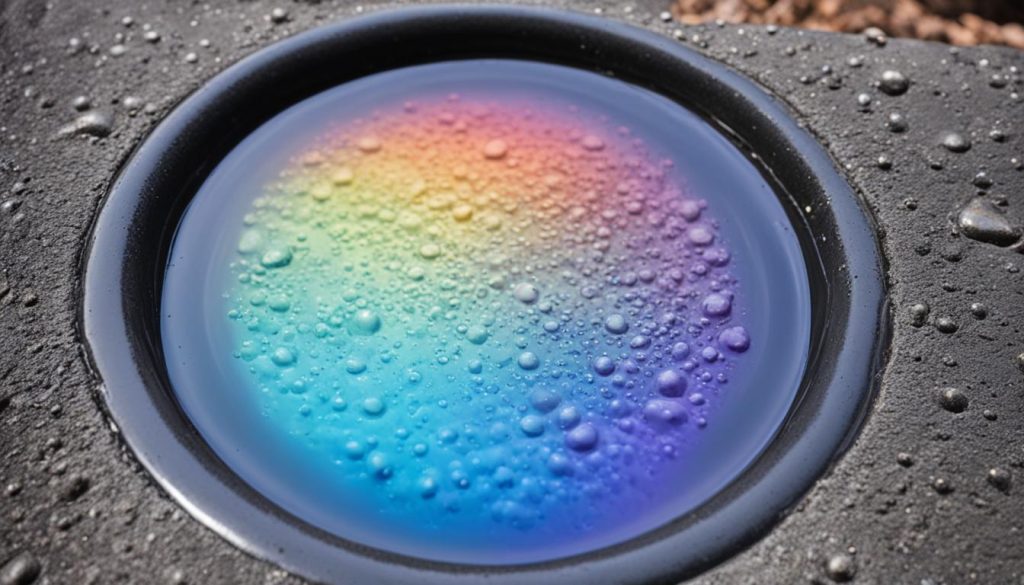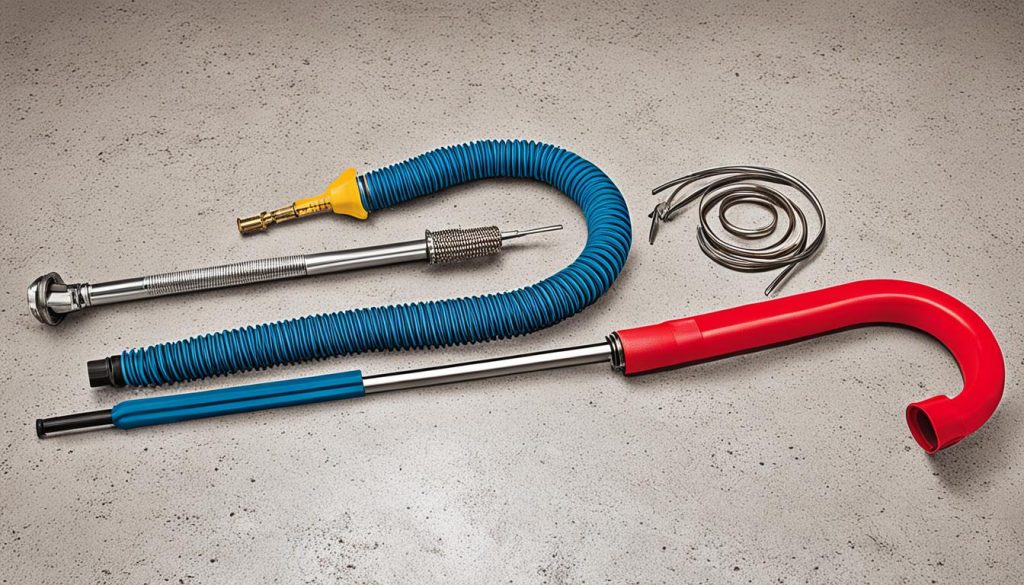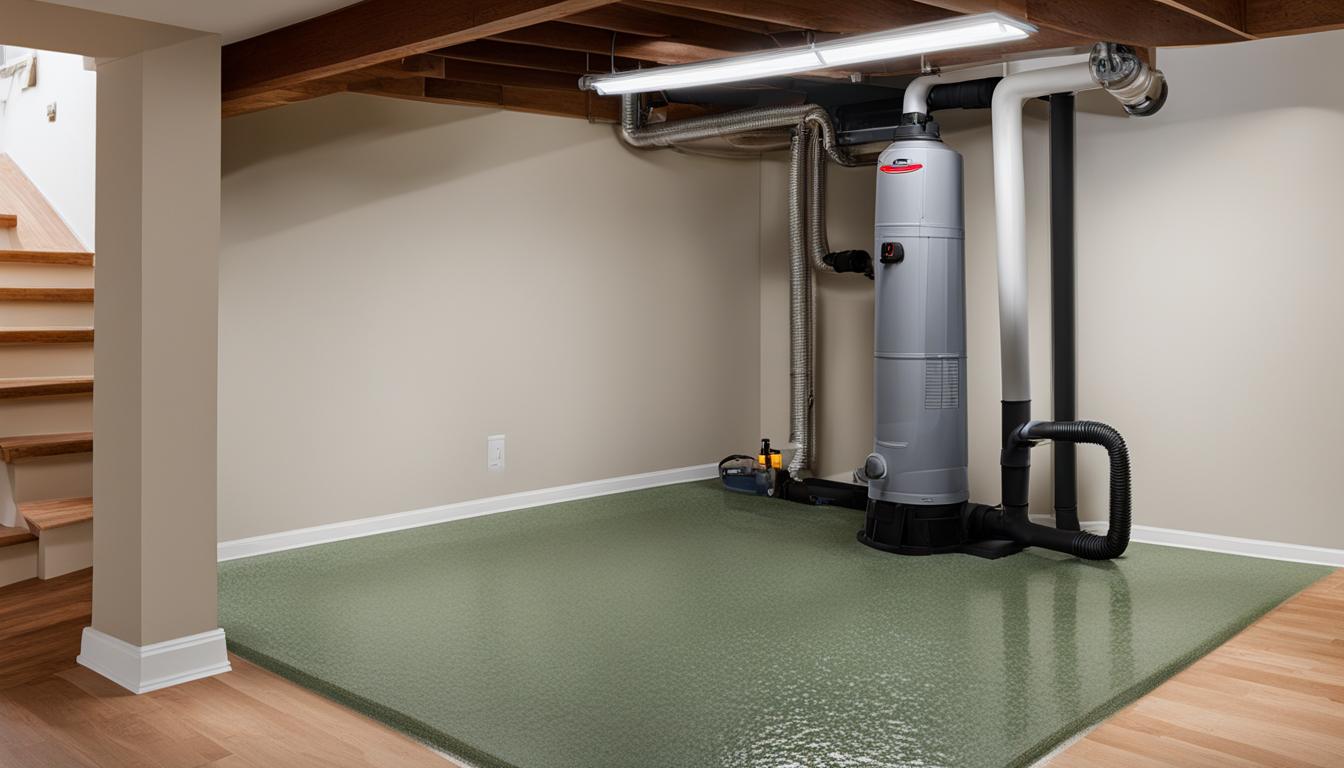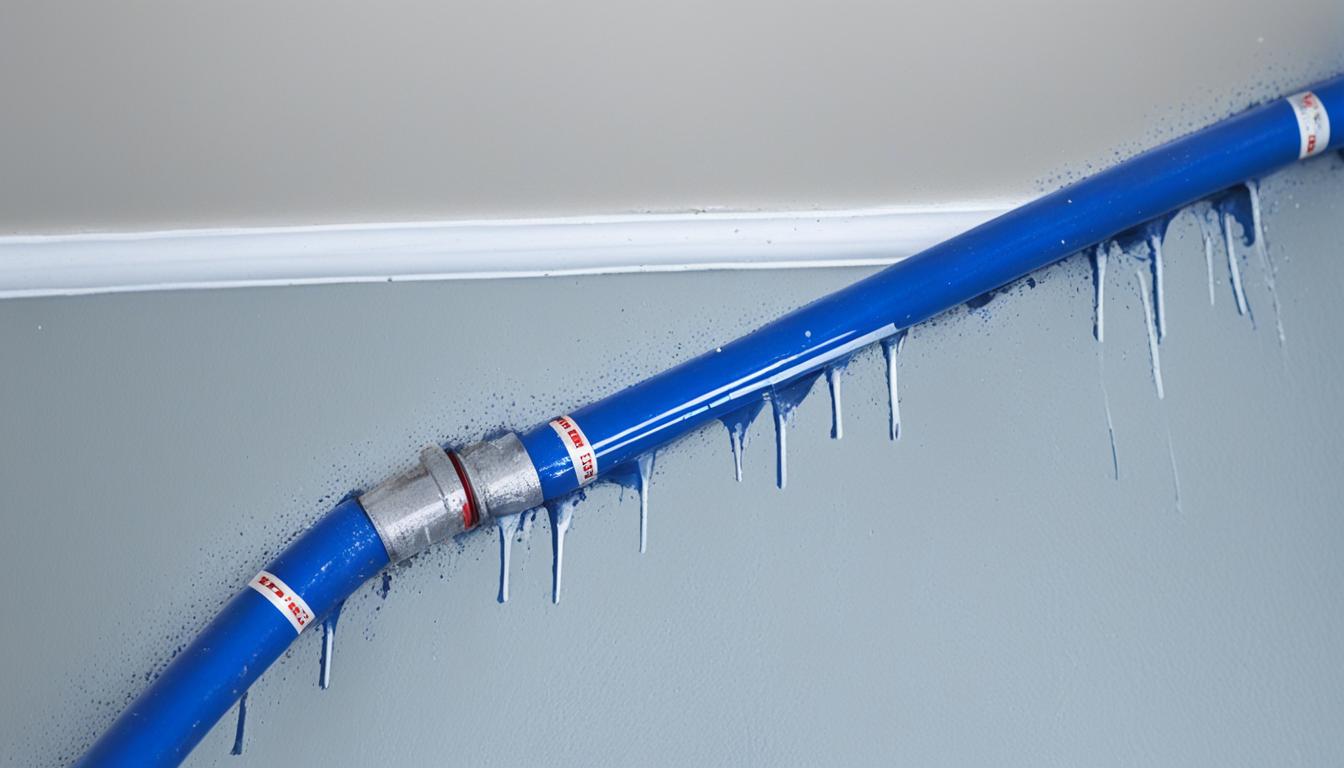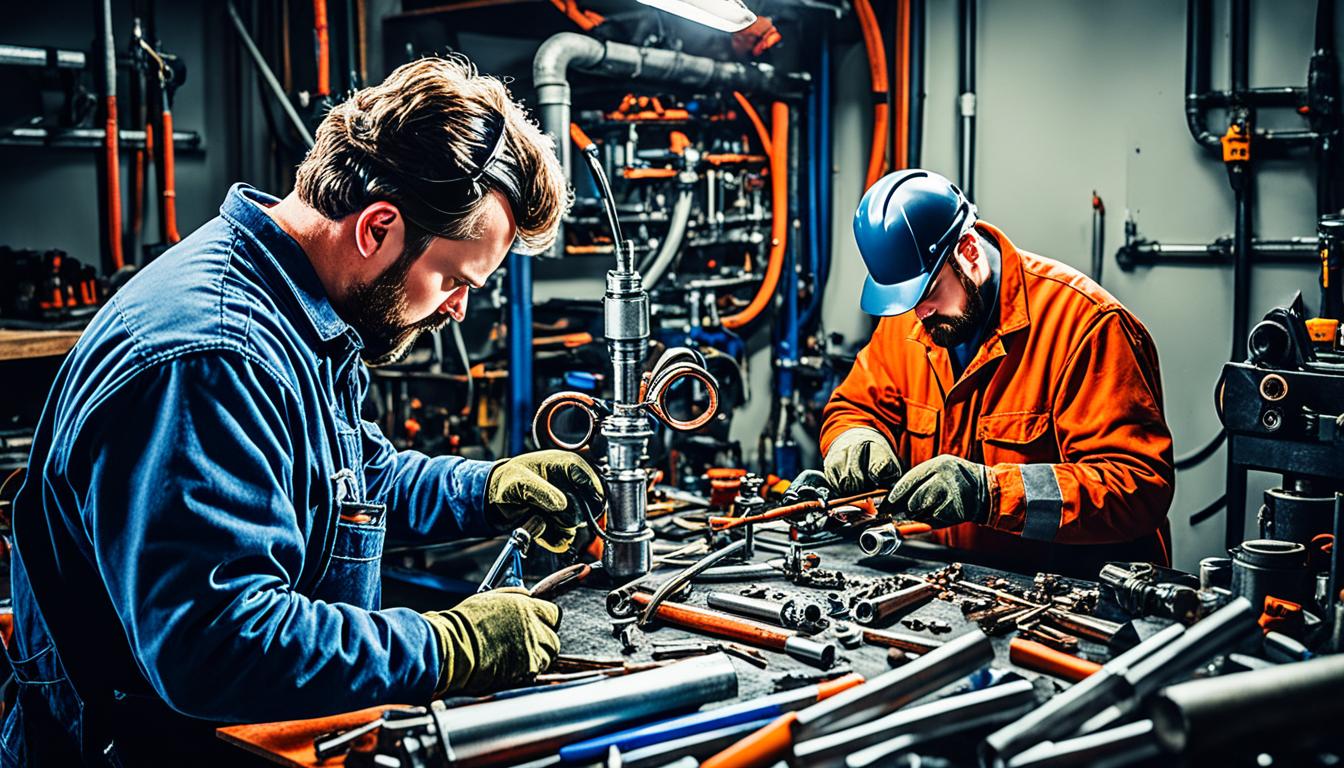Expert Guide on House Drains Maintenance
Keeping your house drains in optimal condition is crucial for the smooth functioning of your plumbing system. Regular maintenance can help prevent clogs and ensure that wastewater flows freely through your pipes. In this expert guide on house drains maintenance, I will share essential tips and techniques to help you maintain clean and healthy drains. From clogged drain solutions to drain cleaning services, I’ll cover everything you need to know to keep your residential drains in top shape.
Key Takeaways:
- Regular maintenance is crucial for preventing clogged drains and maintaining optimal plumbing system functioning
- Clogged drains account for 44% of all plumbing system failures in homes
- By following expert tips and techniques, you can prevent costly repairs and ensure proper drain function
- Professional drain cleaning services and sewer line inspections are essential for thorough maintenance
- Avoid pouring liquid fats, oils, grease, eggshells, coffee grounds, and unused medications down the drain to prevent clogs
The Importance of Regular Drain Maintenance
Regular drain maintenance is crucial to ensure the proper functioning and longevity of your plumbing system. By prioritizing routine maintenance, such as sewer line inspections and professional plumbing services, you can identify and address any potential issues before they turn into costly repairs.
One of the key aspects of regular drain maintenance is conducting sewer line inspections. These inspections allow you to identify any blockages, leaks, or damage in your sewer lines that might otherwise go unnoticed. By promptly addressing these issues, you can prevent them from escalating and causing significant damage to your plumbing system.
Professional plumbing services are essential for maintaining healthy drains. Hiring drain repair experts ensures that your drains are well-maintained and functioning optimally. These professionals have the expertise, tools, and knowledge to perform comprehensive drain inspections, cleanings, and repairs as needed.
When you rely on professional plumbing services, you can rest assured that your drains are in capable hands. They can address a wide range of drain issues, from simple clogs to more complex plumbing problems. Their experience and expertise enable them to accurately diagnose the source of the problem and provide effective solutions.
By investing in regular drain maintenance and partnering with drain repair experts, you can enjoy peace of mind knowing that your plumbing system is in good hands. Not only will this prevent costly repairs down the line, but it will also ensure the uninterrupted flow of water in your home.
Take the necessary steps to prioritize regular drain maintenance today. Schedule sewer line inspections and enlist the help of professional plumbing services to keep your drains in optimal condition and avoid any plumbing emergencies in the future.
| Regular Drain Maintenance | Benefits | |
|---|---|---|
| 1 | Sewer line inspections | – Early detection of potential issues – Prevention of major plumbing problems |
| 2 | Professional plumbing services | – Expertise and tools for comprehensive drain maintenance – Timely repairs and preventive measures |
| 3 | Cost-effective approach | – Prevention of costly repairs – Longevity of the plumbing system |
The Benefits of Regular Drain Maintenance
- Prevents costly repairs in the long run
- Improves the overall health and efficiency of your plumbing system
- Identifies potential issues before they escalate
- Ensures uninterrupted flow of water in your home
- Extends the lifespan of your drains
What Not to Put Down the Drain
When it comes to maintaining healthy drains, it’s crucial to know what should never be poured down the drain. By avoiding certain substances and items, you can prevent clogs and ensure the longevity of your plumbing system.
First and foremost, never pour liquid fats, oils, or grease down the drain. These substances may seem harmless when warm, but as they cool and solidify, they can coat the inside of your pipes and lead to the formation of clogs. Over time, this clog-inducing paste can accumulate and disrupt the flow of wastewater.
There are also other items that should be kept away from your drains. Eggshells, for example, can easily break into small fragments and cause blockages. Coffee grounds, although seemingly innocuous, can clump together and create obstructions in your pipes. Additionally, unused medications should never be disposed of in the drain, as they can contaminate water reservoirs and cause environmental harm.
To help you remember what not to put down the drain, here’s a handy list:
- Liquid fats, oils, grease
- Eggshells
- Coffee grounds
- Unused medications
Remember, proper disposal of these substances and items can go a long way in preventing clogs and ensuring the smooth functioning of your plumbing system.
| Substances and Items to Avoid | Potential Consequences |
|---|---|
| Liquid fats, oils, grease | Clog-inducing paste that accumulates in pipes and disrupts wastewater flow |
| Eggshells | Fragmentation leading to blockages |
| Coffee grounds | Clumping together to create obstructions |
| Unused medications | Potential contamination of water reservoirs and environmental harm |
Best Practices for Cleaning House Drains
When it comes to keeping your house drains clean and clog-free, it’s important to use the right methods and products. While liquid drain cleaners may seem like a convenient option, they can actually damage your pipes and cause more harm than good. Instead, I recommend trying these safe and effective alternatives:
1. Hot Water Flush
A hot water flush is a simple but effective method for clearing minor clogs and keeping your drains clean. To do this, boil a pot of water and carefully pour it down the drain. The hot water helps break down any grease, soap scum, or residue that may be causing the clog, allowing it to flow freely through the pipes.
2. Baking Soda and Vinegar
Another natural and affordable option for cleaning house drains is using a combination of baking soda and vinegar. Start by pouring half a cup of baking soda down the drain, followed by one cup of vinegar. The baking soda and vinegar will create a chemical reaction that helps dissolve clogs and eliminate odors. Let the mixture sit in the drain for about 30 minutes, then flush it with hot water.
3. Enzymatic Drain Cleaners
If you prefer using a commercial product, enzymatic drain cleaners are a safe and effective option. These cleaners contain enzymes that break down organic matter like hair, soap scum, and food particles. Simply follow the instructions on the product and allow the enzymatic cleaner to work its magic. Regular use of enzymatic drain cleaners can help prevent future clogs and keep your drains flowing smoothly.
Using these best practices for cleaning house drains will not only help you maintain clear and odor-free drains but also prevent costly plumbing issues down the line. Remember to avoid using harsh chemicals and always opt for safe and eco-friendly methods.
| Method | Description |
|---|---|
| Hot Water Flush | Pouring boiling water down the drain to dissolve minor clogs and remove residue. |
| Baking Soda and Vinegar | A mixture of baking soda and vinegar that creates a reaction to break down clogs and eliminate odors. |
| Enzymatic Drain Cleaners | Commercial cleaners containing enzymes that dissolve organic matter and prevent future clogs. |
Essential Tools for Removing Clogs
When it comes to dealing with clogs in your drains, having the right tools is essential. Whether you’re facing a small clog or a more stubborn blockage, three tools can help you effectively remove the obstruction: an auger, a snake, and a cup plunger.
1. Auger
An auger, also known as a drain auger or plumber’s snake, is a flexible tool designed to break up clogs and clear obstructions in your pipes. It features a long, coiled wire that can reach deep into the drain to dislodge debris. An auger is particularly useful for removing stubborn clogs caused by hair, soap scum, or small objects.
2. Snake
A snake, similar to an auger, is a handheld tool specifically designed to navigate through pipes and remove clogs. It consists of a long, flexible cable with a spiral blade at the end. When inserted into the drain, the snake can break down and remove clogs that are deeper within the plumbing system. This tool is particularly effective for clearing clogs caused by tree roots or other larger obstructions.
3. Cup Plunger
A cup plunger, also known as a sink plunger, is a common tool used to unclog drains. It consists of a rubber cup attached to a handle. The cup is placed over the drain opening, and by exerting pressure and creating suction, the plunger can dislodge simple clogs. Cup plungers are most effective for small clogs caused by debris, grease, or food particles.
By having these essential tools on hand, you’ll be well-equipped to tackle clogs of varying sizes and complexities. Remember to use them carefully and follow proper techniques to avoid causing damage to your pipes. If a clog persists or you’re unsure about handling it yourself, it’s always best to seek professional assistance.
Preventive Measures for Healthy Drains
To prevent clogged drains, it’s important to take proactive measures and adopt eco-friendly drain solutions. By implementing these preventive measures, you can maintain the proper functioning of your plumbing system and minimize the need for costly repairs.
Be Mindful of What Goes Down the Drain
One of the simplest ways to prevent clogged drains is to be mindful of what you dispose of in the sink or toilet. Avoid pouring grease, coffee grounds, and food scraps down the kitchen sink, as they can accumulate and cause blockages over time. Instead, dispose of grease by allowing it to solidify and throwing it in the trash. Use a sink strainer to catch food particles and avoid them from going down the drain.
In the bathroom, install hair catchers in the shower and tub drains to prevent hair clogs. These inexpensive accessories can effectively collect hair and save you from the hassle of dealing with stubborn clogs.
Regularly Clean Your Drains
Maintaining clean drains is crucial for preventing clogs. Regularly flush your drains with hot water to remove any accumulated grease and debris. Hot water can help dissolve clogs and keep your drains flowing smoothly. Alternatively, you can use a mixture of baking soda and vinegar to naturally clean your drains. Simply pour half a cup of baking soda down the drain, followed by half a cup of vinegar. Let the mixture sit for a while, and then flush it with hot water to clear away any buildup.
Consider Eco-Friendly Drain Solutions
When it comes to drain cleaning products, opt for eco-friendly solutions that are gentle on your plumbing system and the environment. Many commercial drain cleaners contain harsh chemicals that can corrode pipes and harm aquatic life when they make their way into water sources. Instead, look for enzymatic drain cleaners that use natural enzymes to break down organic matter and prevent clogs. These eco-friendly alternatives are effective and safe for both your drains and the planet.
| Eco-Friendly Drain Solutions | Benefits |
|---|---|
| Enzymatic drain cleaners | – Environmentally friendly – Safe for pipes – Effective in preventing clogs |
| Baking soda and vinegar | – Natural ingredients – Non-corrosive – Safe for regular use |
| Hot water flush | – Quick and easy – Helps dissolve grease and debris – Prevents buildup |
By incorporating these preventive measures into your regular maintenance routine, you can ensure the health and longevity of your drains while also promoting a greener, sustainable approach to plumbing.
Professional Maintenance for Optimal Drain Functioning
While I understand the appeal of DIY techniques for minor drain clogs, it’s crucial to schedule regular professional drain cleaning services to ensure optimal functioning of your plumbing system. Professional plumbers have the expertise and tools necessary to perform thorough inspections, identify potential issues, and provide the necessary repairs or maintenance.
One of the key components of professional maintenance is sewer line inspections. These inspections are essential to detect any underlying problems that may not be visible to the naked eye. By identifying issues early on, professional plumbers can prevent major plumbing emergencies and save you from costly repairs down the line.
Benefits of Professional Drain Cleaning Services
When you enlist the services of professional plumbers for drain cleaning, you can expect a range of benefits that go beyond just unclogging drains. Here are a few advantages:
- Thorough inspections: Professional plumbers use advanced tools and techniques to inspect your drains and identify any potential issues, such as tree root intrusions or pipe damage.
- Expert advice: Professional plumbers can provide personalized advice on how to maintain your drains and prevent future clogs, helping you avoid recurring problems.
- Efficient solutions: With their experience and expertise, professional plumbers can quickly and efficiently resolve drainage issues, restoring proper flow in your pipes.
- Long-term savings: By addressing drain problems promptly and effectively, professional drain cleaning services can help you avoid costly repairs or replacements in the future.
Remember, prevention is always better than cure when it comes to your plumbing system. Professional maintenance and drain cleaning services can help you keep your drains in optimal condition, ensuring the longevity of your plumbing system and the comfort of your home.
| Benefits of Professional Drain Cleaning Services |
|---|
| Thorough inspections |
| Expert advice |
| Efficient solutions |
| Long-term savings |
Tips for Healthy Plumbing Practices
When it comes to maintaining a healthy plumbing system, regular drain maintenance is just the beginning. To ensure the long-term health of your plumbing, here are some additional tips to follow:
1. Proper disposal of cooking grease: Instead of pouring cooking grease down the drain, let it cool and solidify, then dispose of it in the trash. This prevents grease from accumulating in the pipes and causing clogs.
2. Regularly clear shower drains: Hair and soap scum can easily build up in shower drains, leading to slow drainage and clogs. Use a drain cover or hair catcher to trap hair and regularly clean the drain to maintain optimal flow.
3. Garbage disposal maintenance: While convenient, garbage disposals can be prone to clogs. Avoid disposing of fibrous or starchy foods, such as potato peels or celery, which can cause blockages. Instead, dispose of these items in the trash.
By following these tips, you can take proactive measures to keep your plumbing system in top shape. Remember, a little preventive maintenance goes a long way in avoiding costly repairs and ensuring the smooth functioning of your drains.
- Investing Wisely: How Windows & Doors in Boost Property Value and Financial Health - April 24, 2025
- The Financial Impact of Personal Injuries: Why Legal Help Matters for Business Owners - April 16, 2025
- The Hidden Financial Costs of Domestic Assault: What Business Owners Need to Know - April 16, 2025
